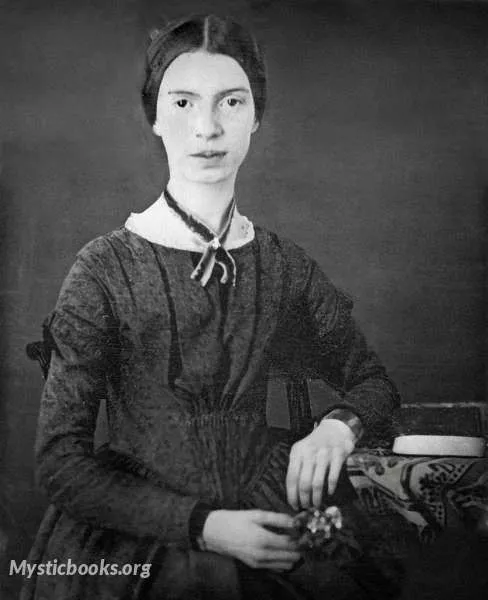
Timeline
Title
Country/Nationality
Emily Dickinson
Emily Elizabeth Dickinson was an American poet. Little known during her life, she has since been regarded as one of the most important figures in American poetry.
Dickinson was born in Amherst, Massachusetts into a prominent family with strong ties to its community. After studying at the Amherst Academy for seven years in her youth, she briefly attended the Mount Holyoke Female Seminary before returning to her family's house in Amherst.
Evidence suggests that Dickinson lived much of her life in isolation. Considered an eccentric by locals, she developed a penchant for white clothing and was known for her reluctance to greet guests or, later in life, to even leave her bedroom. Dickinson never married, and most friendships between her and others depended entirely upon correspondence.
While Dickinson was a prolific writer, her only publications during her lifetime were 10 of her nearly 1,800 poems, and one letter. The poems published then were usually edited significantly to fit conventional poetic rules. Her poems were unique for her era. They contain short lines, typically lack titles, and often use slant rhyme as well as unconventional capitalization and punctuation. Many of her poems deal with themes of death and immortality, two recurring topics in letters to her friends, and also explore aesthetics, society, nature and spirituality.
Although Dickinson's acquaintances were most likely aware of her writing, it was not until after her death in 1886—when Lavinia, Dickinson's younger sister, discovered her cache of poems—that her work became public. Her first collection of poetry was published in 1890 by personal acquaintances Thomas Wentworth Higginson and Mabel Loomis Todd, though both heavily edited the content. A 1998 New York Times article revealed that of the many edits made to Dickinson's work, the name "Susan" was often deliberately removed. At least eleven of Dickinson's poems were dedicated to sister-in-law Susan Huntington Gilbert Dickinson, though all the dedications were obliterated, presumably by Todd. A complete, and mostly unaltered, collection of her poetry became available for the first time when scholar Thomas H. Johnson published The Poems of Emily Dickinson in 1955.
Books by Emily Dickinson
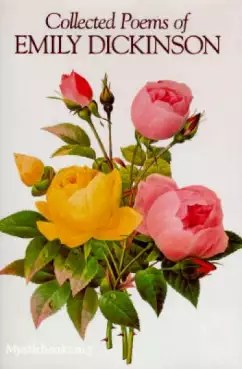
Selected Poems of Emily Dickinson
Emily Dickinson has come to be regarded as one of the quintessential poets of 19th century America. A very private poet with a very quiet and reclusive life, her poetry was published posthumously and immediately found a wide audience.
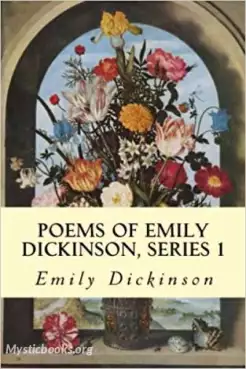
Poems: Series One
Renowned poet Emily Dickinson (1830 - 1886) wrote many many poems. This collection, "Poems: Series One", presents the first installment of the complete poetic works of Miss Emily Dickinson. It is broken into four parts: Life, Love, Nature, and Time a...
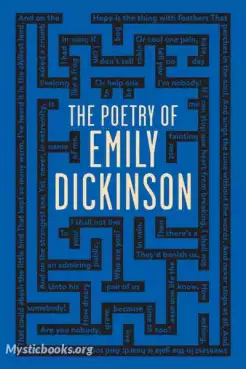
Poems: Series Two
"The eagerness with which the first volume of Emily Dickinson's poems has been read shows very clearly that all our alleged modern artificiality does not prevent a prompt appreciation of the qualities of directness and simplicity in approaching the g...
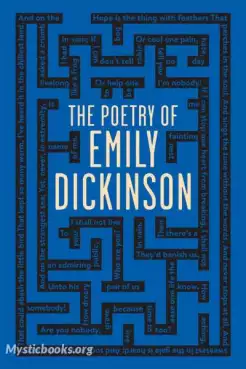
Emily Dickinson on Death
Emily Dickinson is one of the most intriguing of American poets. Since she grew increasingly reclusive, very few of her poems were published until after her death. This collection includes two letters Dickinson wrote to her friends on the occasion of...
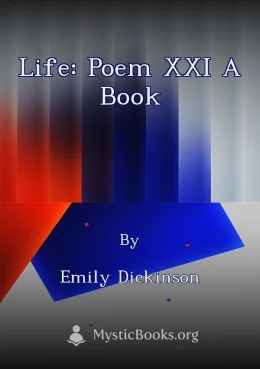
Life: Poem XXI A Book
Poem XXI: "A Book", read by the wonderful podcasters at the Podcasters Across Borders 2006 conference, in Kingston, Ontario, June 23-24, 2006.
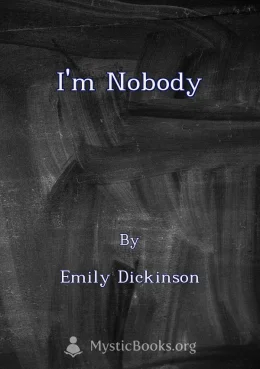
I'm Nobody
LibriVox volunteers bring you 17 different recordings of I’m Nobody, by Emily Dickinson. Dickinson’s text of this poem contains two possible versions of it. There is a great deal of discussion among academics as to which she preferred. Only one versi...
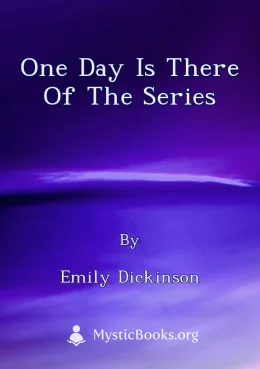
One day is there of the series
LibriVox volunteers bring you 6 different recordings of One day is there of the series by Emily Dickinson. This was the weekly poetry project for the week of November 25th, 2007.
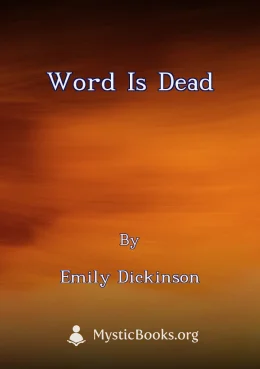
Word Is Dead
LibriVox volunteers bring you 20 different recordings of A Word Is Dead, by Emily Dickinson. This was the weekly poetry for the week of July 06, 2008.
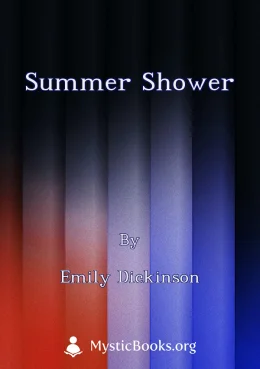
Summer Shower
This beautiful poem by Emily Dickinson captures the essence of a summer shower, with its refreshing and renewing qualities. The imagery of the rain falling like a "gauze" and the "soft purple lilac" create a sense of peace and tranquility. The poem a...
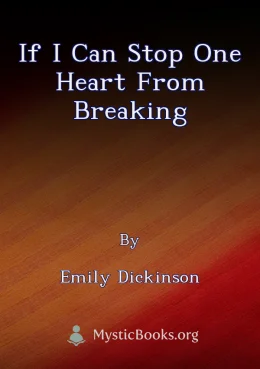
If I Can Stop One Heart From Breaking
This collection of poems by Emily Dickinson explores themes of love, loss, death, and the human condition. Dickinson's unique style, characterized by its use of dashes, unconventional grammar, and vivid imagery, creates a haunting and evocative readi...
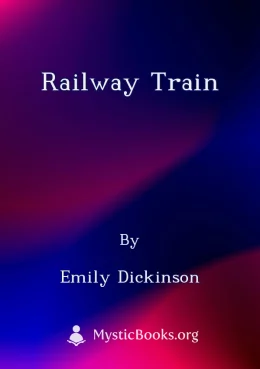
Railway Train
Emily Dickinson's "The Railway Train" is a short poem that uses the imagery of a train journey to explore themes of mortality and the passage of time. The poem is notable for its use of unconventional punctuation and capitalization, as well as its st...
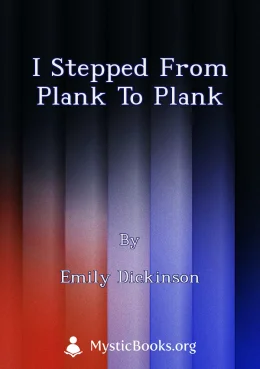
I Stepped from Plank to Plank
Emily Dickinson's poetry explores the profound complexities of human existence through the lens of her own isolated and introspective life. With a keen eye for nature and a contemplative spirit, she delves into themes of mortality, self-reliance, and...

Safe in their Alabaster Chambers
Emily Dickinson's poems are unique for the era in which she wrote; they contain short lines, typically lack titles, and often use slant rhyme as well as unconventional capitalization and punctuation. Many of her poems deal with themes of death and im...
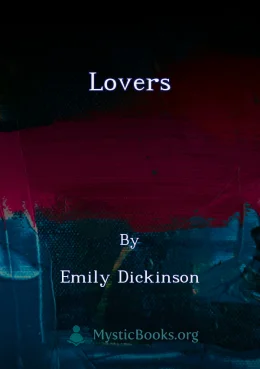
Lovers
Emily Dickinson's 'Lovers' is a collection of poems that explore the complex and often contradictory nature of love. Dickinson's poems are known for their unique and often unconventional style, and 'Lovers' is no exception. The poems in this collecti...
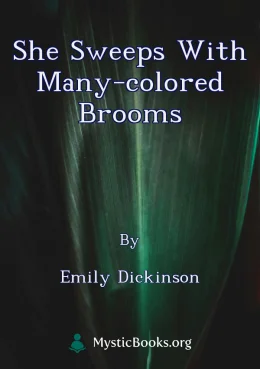
She sweeps with many-colored Brooms
Emily Dickinson's 'She sweeps with many-colored Brooms' is a collection of poems that explore the themes of nature, death, and immortality. Written in a unique style that is characterized by short lines, unconventional capitalization, and slant rhyme...
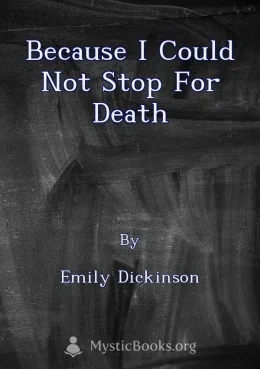
Because I Could Not Stop For Death
Emily Dickinson's poem, "Because I Could Not Stop For Death," is a powerful exploration of mortality and the afterlife. Through a metaphorical journey with Death as a carriage driver, the speaker contemplates the transition from life to eternity. The...
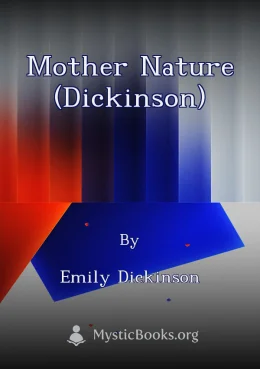
Mother Nature (Dickinson)
Emily Dickinson's "Mother Nature" is a poignant exploration of the natural world and its connection to human existence. Known for her unconventional style, Dickinson uses evocative imagery and fragmented syntax to explore themes of mortality, spirit...
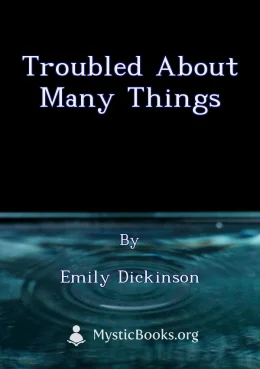
Troubled About Many Things
This collection of poems, written by Emily Dickinson, reflects her introspective nature and deep contemplation of life, death, and the human condition. Dickinson, known for her reclusive lifestyle, channeled her experiences and observations into ver...
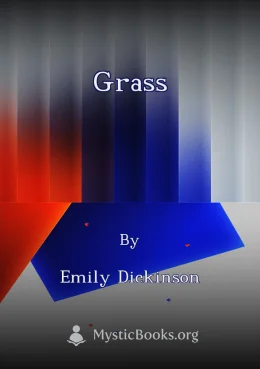
Grass
This poem by Emily Dickinson, simply titled "The Grass," explores the cyclical nature of life and death. Through vivid imagery, Dickinson compares the growth and decay of grass to the passage of time and the inevitability of mortality. The poem delve...
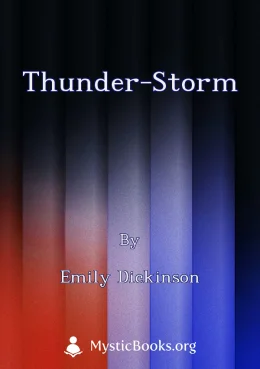
Thunder-Storm
Emily Dickinson's "A Thunder-Storm" is a vivid and powerful depiction of a thunderstorm. The poem uses rich imagery and sensory details to capture the power and beauty of nature. Dickinson also explores the philosophical implications of the storm, se...
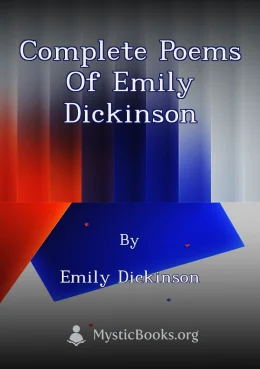
Complete Poems of Emily Dickinson
The Complete Poems of Emily Dickinson is a collection of over 1,700 poems by the American poet Emily Dickinson. The poems are known for their独特的风格, which is characterized by their short length, unconventional use of punctuation, and frequent use...
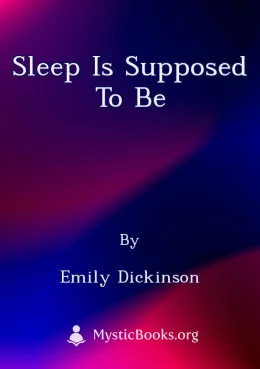
Sleep Is Supposed To Be
This book is a collection of poems by Emily Dickinson that explore the nature of sleep, dreams and the subconscious mind. Through her unique and evocative language, Dickinson offers insights into the human experience of sleep and the ways in which it...
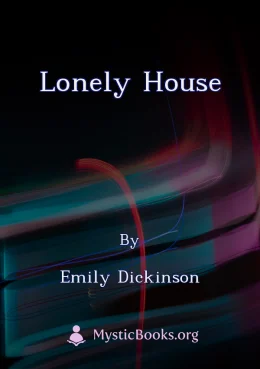
Lonely House
The Lonely House by Emily Dickinson is a haunting and atmospheric poem that explores the themes of death, isolation, loneliness, and grief. The poem's speaker describes a lonely house that seems to be haunted by the ghosts of its former occupants. Th...
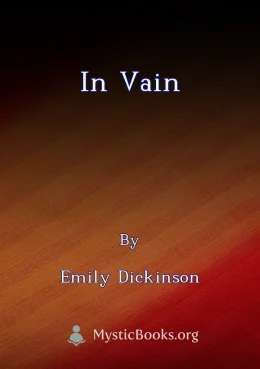
In Vain
In Vain by Emily Dickinson is a collection of poems that explore the themes of death, loss, grief, and mortality. Dickinson's poems are often characterized by their spare language, their use of metaphor, and their haunting imagery. In Vain is a power...
Showing 1 to 24 of 26 results